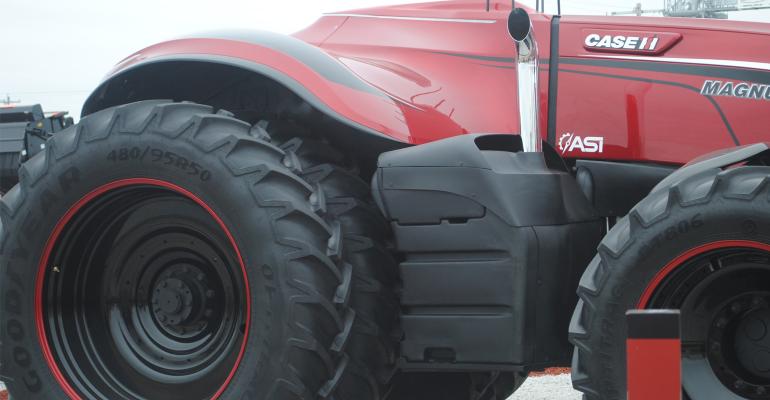
The future seems to be slowly but surely rolling toward widespread use of autonomous equipment across U.S. farms. Most major manufacturers have already designed prototypes. Some are even testing the waters with limited commercial launches this year.
Are farmers ready to let their equipment run across fields without being in the cab? A Farm Futures grower survey earlier this year shows some hesitation. Of the nearly 600 respondents, only 5% said they would consider buying an autonomous tractor in the next year. But that minority is certain to grow over time. And it painted a picture of how this technology could boost efficiency and productivity.
Ponder possibilities
Ohio farmer Fred Miller considers himself an early adopter. He thinks he might have had the state’s first autosteer two decades ago. So it’s no surprise he’s been considering autonomous tech for his operation.
For example, Miller, who farms with son Tyler, has a sprayer but likes the idea of adding a second autonomous sprayer to run with it, using the first driver to refill both rigs as needed.
“We could get over a tremendous amount of acres that way,” he says.
Miller also foresees using several smaller autonomous vehicles to minimize compaction issues as they complete various in-field tasks.
“Maybe several in operation could do the work of one larger machine,” he says. “We’re not doing it yet, but I could definitely see us doing it in the future.”
Indiana farmer Brandon Petty is among those who see autonomous tech as a solution to labor issues.
“The biggest benefit I can see is freeing up myself or other manpower when we have basic driving tasks to perform and lack the manpower to accomplish them all,” he says. “I see tillage, grain cart tractor as main uses, but could see it gradually [for] planting soybeans and progressing from there.”
Cost factor
Miller and Petty say cost will rank high in adoption. Petty also wonders about potential subscription costs.
“Many times these weigh heavy on our decision on whether or not to adopt something new,” he says.
And then there’s the matter of trust. That’s still an issue that plagues the automotive industry as it tries to sell driverless cars. In a poll done in March by Morning Consult, more than half of adults (66%) said they trust self-driving vehicles “not much” or “not at all.” Generational gaps were very evident, too — just 21% of baby boomers surveyed said they trust self-driving vehicles “a lot” or “some,” while 48% of millennials gave those responses.
The same could be said for producers looking into autonomous farm machinery. Will early adopters still have to wrestle with the occasional bug? Will they trust the tech enough to let it run unsupervised?
Autonomous tech could be a game-changer for agriculture, although there’s no guarantee it will take off. But then again, GPS and autosteer may have seemed frivolous initially, but how would you get along without them today?
Peers top ‘trust list’
How do you decide to invest in new technology on your farm? More than 700 farmers answered that question in a recent Farm Futures survey. It turns out farmers tend to trust their peers the most when making tough tech decisions. But that’s not the only path to adoption. Here are the top five responses to that survey question:
Comments from other farmers who tried it (51%)
On-farm trials (47%)
Proven ROI (43%)
Past results from university test data (29%)
Meeting with company representatives (23%)
About the Author(s)
You May Also Like






